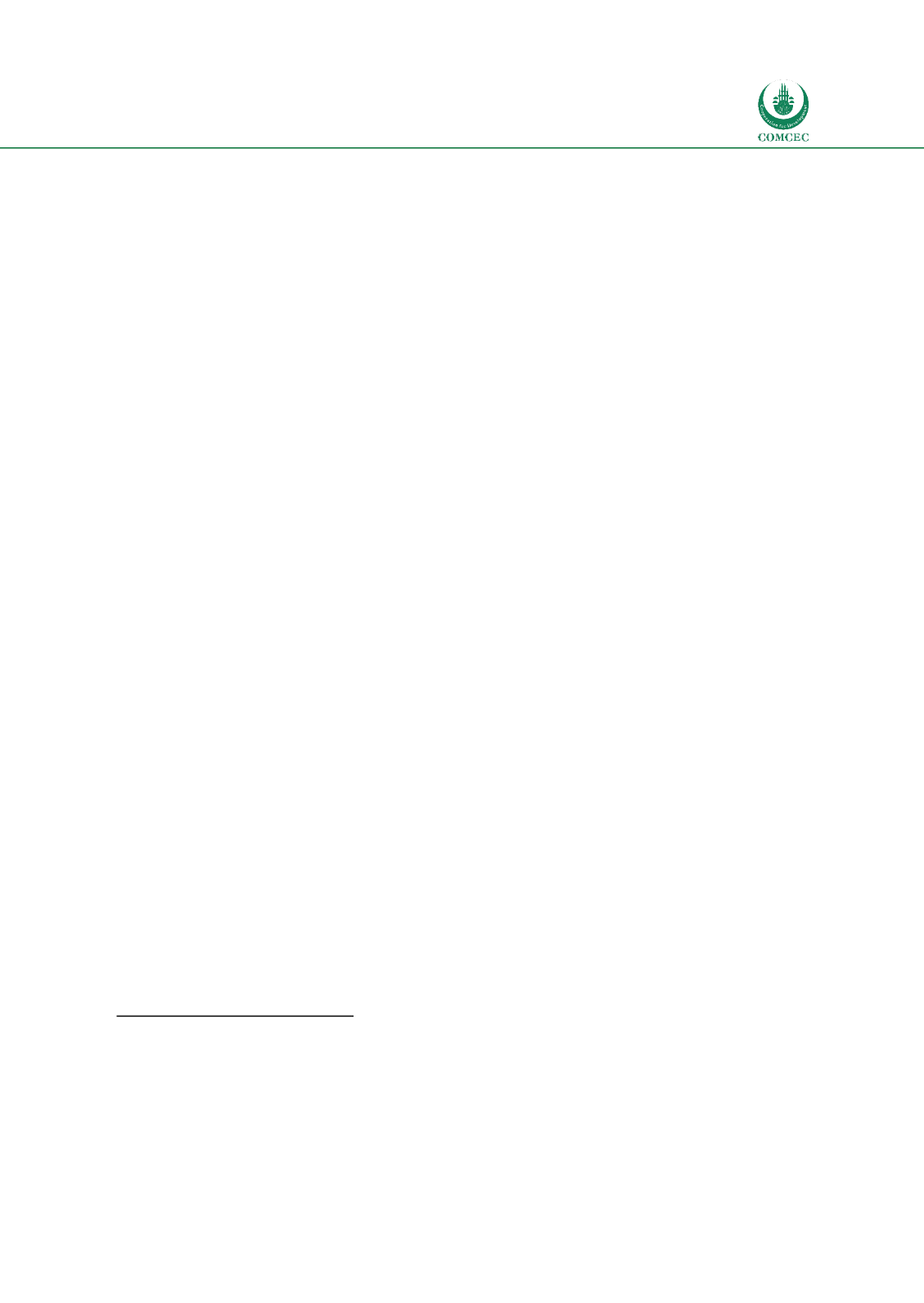

Muslim Friendly Tourism:
Regulating Accommodation Establishments
In the OIC Member Countries
39
3.2
Development Process of MFT Standards
The process of developing MFT standards is similar to the process used to develop
conventional quality standards, with steps including engaging stakeholders, defining scope,
building awareness, and developing inspection and certification capabilities. MFT standards
can build on the successes of other “Halal” sectors, such as Halal food. A few MFT standards
have emerged to date. Within the OIC countries, governments typically develop MFT
standards, as in the case of Malaysia. In the non-OIC countries, Islamic organizations have led
the MFT standards’ development efforts, as in the case of Croatia. In some instances, MFT
standards are set by private organizations, such as the CrescentRating standard. The
following section presents a general review of MFT standards.
Malaysian MFT Standard
MS 2610:2015, a new Malaysian standard defining “Muslim friendly hospitality services –
Requirements,” followed a conventional process in its development.
74
The process started in
December 2012, led by the International Institute for Halal Research and Training (INHART,
part of the International Islamic University of Malaysia) and the Department of Standards
Malaysia (DSM). Subsequently, the Scientific and Industrial Research Institute of Malaysia
(SIRIM) was engaged (to lead a Technical Committee on Management System from Islamic
Perspectives) and other supporting committees were established to develop the standard.
A draft MFHS document was released in August 2014 for a two-month public comment
period. Finally, in January 2015, the standard was published. The Department of Standards
Malaysia currently sells the full standard to interested parties for a nominal price. Diverse
stakeholders were engaged in the development of the standard, including the Islamic Tourism
Center (Ministry of Tourism and Culture)
75
, Tourism Malaysia, the Malaysia Association of
Hotel Owners, the Malaysia Association of Hotels, the Malaysian Association of Tour and
Travel Agents, the Malaysian Tourist Guides Council, the Muslim Consumers’ Association of
Malaysia, and various other government ministries and related stakeholders.
76
CrescentRating Standard
CrescentRating developed and launched its MFT rating system/standard in 2008. It has since
been voluntarily adopted by hotels in several countries. CrescentRating has developed its
MFT standards as part of a larger Muslim travel products portfolio including apps, a travel
portal, consulting services, and travel data. CrescentRating’s Muslim travel products
complement each other and help support its MFT standard.
77
CrescentRating has kept its MFT
accommodation standard process simple by allowing hotels to self-evaluate for free without
an on-site audit.
78
74
"Muslim Friendly Hospitality Services Standard."
Discover Malaysia - Your Muslim-Friendly Destination
. ITC Malaysia,
2016. Web. 17 Oct. 2016.
75
Zulkifly, Said Md.
Islamic Tourism: Sharing Malaysia's Best Practices
. Islamic Tourism Centre, 16 Nov. 2015. Web. 17 Oct.
2016.
76
Malaysia. Department of Standards Malaysia.
MS 2610:2015 Muslim Friendly Hospitality Services - Requirements
. Kuala
Lampur: Standards Malaysia, 2015. Print.
77
Bahardeen, Fazal. Best Practice:
CrescentRating
. CrescentRating, 2015. Web. 17 Oct. 2016.
78
"CrescentRating Overview for Hotels."
World's Leading Authority on Halal Travel â“ CrescentRating
. Crescent Rating,
2016. Web. 17 Oct. 2016.
















